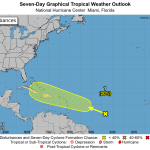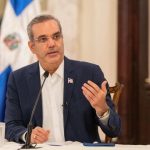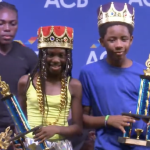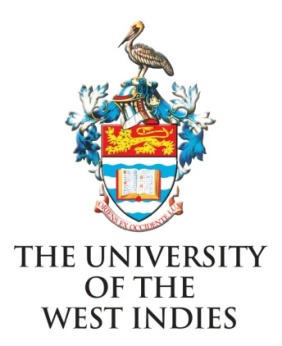African kings, queens and traditional leaders will be among high-profile participants at a one-day symposium being staged Thursday at The University of the West Indies (The UWI), Mona campus, to discuss a range of issues relating to slavery and which, the organisers expect, will change the long-held view that African royals had a hand in one of the greatest crimes against humanity.
The symposium, being held under the theme ‘Reparation and royalty, Africa and Europe: Exploding myths, empowering truths’, is organised by the Caricom Reparations Commission in collaboration with The UWI, the Centre for Reparation Research, and the PJ Patterson Institute for Africa-Caribbean Advocacy.
The African leaders include Paul Jones Eganda, global chief and president of Ateker International Development Organization (AIDO) Network; his wife Queen Grace Eganda, head of Africa and Diaspora Royal Kingdoms Alliance, AIDO Network; Princess Nikiwe Bam of the Mpondomise Nation’s Ngxabane clan; Chief Dr Robinson Tanyi of Cameroon; Queen Cynthia Khumalo Mzilikazi III of the Royal Mzilikazi Kingdom (Zulu Nation), South Africa; Nana Enoch Aboagye Gyabaa III, traditional leader and human rights attorney of Ghana; and Paul Sande Emolot, Papa Emorimor III, King of Ateker Iteso, East Africa.
“There is a narrative that has been deliberately promoted by Europe seeking to assign shared responsibility for slavery with the tribal leaders and the kings and princes of Africa. “It has constituted an elephant in the room, both in developing relationships with the nations of Africa and in our just claims for reparation,” Patterson, who served as Jamaica’s sixth prime minister from 1992 to 2006, told the Jamaica Observer on Sunday.
“The discussions are going to focus on learning from our African brothers and sisters about the pre-colonial societies and the disastrous effects slavery has had on African development,” Patterson explained.
“We are not only going to look at the past, but we’re going to look into the future and see what strategies we can jointly employ to promote knowledge about ourselves and how can we strengthen Africa-Caribbean relationships by trade and investment,” added Patterson, whose institute has been championing the development people-to-people contact between Africa and the Caribbean.
The pre-conference document states that the event will:
i) hear from descendants of African elites about pre-colonial societies and the changes brought by trading in Africans;
ii) discuss the roles of African and European royal families and other elites in the transatlantic trade in enslaved Africans and the chattelisation of Africans;
iii) seek answers to questions such as:
a) who should bear the major responsibility for initiating the capturing and trading of Africans and their use as chattel, enslaved on plantations and other types of properties in the Caribbean and elsewhere?
b) who benefited economically, socially, and politically from the transatlantic slave trade and plantation construction and exploitation?
c) what was the extent of resistance to these crimes against humanity on all sides of the Atlantic? and
d) who should pay reparation and in what forms?
The conference will also examine strategies to improve knowledge among African and Caribbean peoples, and how to reconnect as well as strengthen Africa-Caribbean relationships, including through trade and investment.
Patterson, who will be a panellist in the afternoon session, told the Observer that it is highly appropriate that the symposium is taking place at Mona, given that The UWI is celebrating its 75th anniversary .
Professor Verene Shepherd, he said, “is the moderator-in-chief ” for the symposium, which also coincides with the 10th anniversary of the Centre for Reparation Research.
Jamaica’s Minister of Culture, Gender, Entertainment and Sport Olivia “Babsy” Grange is on the agenda to participate, so too are Professor Sir Hilary Beckles, vice chancellor of The UWI and chair of the Caricom Reparations Commission, and Steven Golding, president of the Universal Negro Improvement Association and member of Jamaica’s National Council on Reparation.
Panellists from The UWI include Professor John Ayotunde Isola Bewaji, professor emeritus of philosophy; Dr Michael Barnett, senior lecturer, Department of Sociology, Psychology and Social Work; Dr Sonjah Stanley-Niaah, deputy dean, Faculty of Humanities and Education; Dr Kavita Johnson, lecturer, Department of Government, Faculty of Social Sciences.
Also participating will be Arley Gill, chairman, Grenada Reparations Commission; Dorbrene O’Marde, chairman, Antigua and Barbuda Reparations Support Commission; and Ambassador Ireneo Namboka, AIDO vice-president and vice chancellor, African Open University, Switzerland.
“We really want to get the royalty and tribal leaders in Africa who are extremely influential and powerful where they live engaging in the dialogue,” Patterson said, adding, “I really hope that at the end of it we’re going to remove all the misgivings about complicity in Africa.”
“We’ve been sold a bill of goods which obscures the fact that this thing was done by extortion, and also Africa suffered terribly by the loss of generations of young people,” Patterson said.










